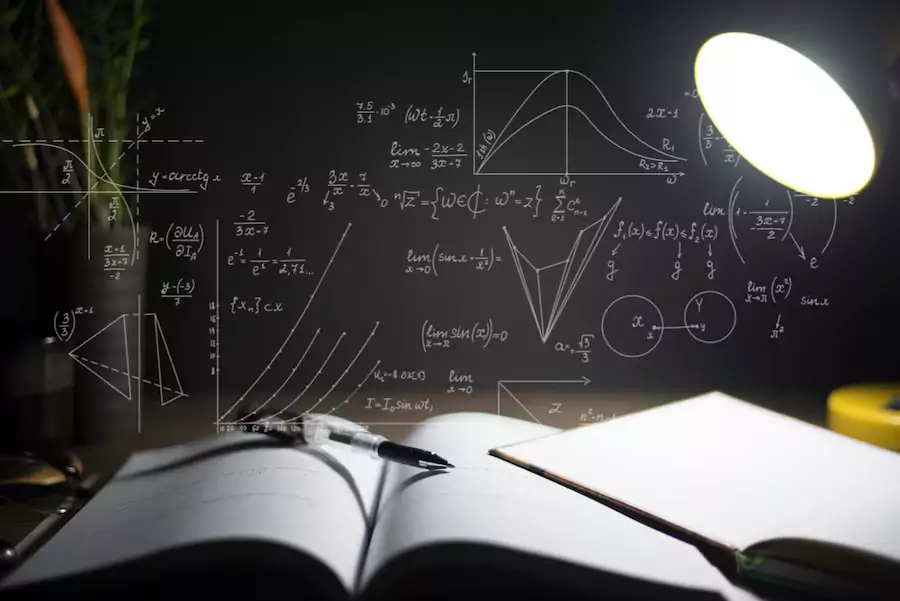Have you ever wondered how we teach math in schools? Well, Jill Barshay of The Hechinger Report has taken a deep dive into an emerging controversy that could stir up a storm in the world of education.

✅ AI Essay Writer ✅ AI Detector ✅ Plagchecker ✅ Paraphraser
✅ Summarizer ✅ Citation Generator

This debate centers on how we should be teaching math. But could this disagreement signal a larger problem in how we educate our kids?
Key Takeaways:
- Math Education Controversy: Jill Barshay of The Hechinger Report highlights an emerging debate in the field of education, focusing on the methodology of teaching math, signaling potential larger issues in our educational system.
- Sarah Powell’s Movement: Sparked by the observations of Sarah Powell, a special education professor at the University of Texas, a ‘math movement’ is advocating for math to be prioritized like reading, using scientific teaching methods.
- Balanced Approach vs. Tradition: The movement promotes a balanced approach to math education that includes both procedural knowledge and conceptual understanding, challenging long-standing beliefs about math instruction. However, not all educators are on board, leading to a renewed chapter in the Math Wars.
- A Complex Science: The ‘science of math’, while similar in principle to the ‘science of reading’, is highlighted as a more complex field, with much still to learn about the most effective ways to teach math.
The Wake-Up Call: Sarah Powell’s Observations
Let’s backtrack a little. Sarah Powell, a special education professor at the University of Texas at Austin, had a wake-up call when most third graders in her study struggled with a simple math problem. This sent alarm bells ringing for Powell, who views this issue as a significant fairness problem. She passionately stated, “It is totally unfair what we are doing to these kids.”
Powell boldly stated, “We have a science of math just like there is a science of reading,” underscoring the desire of the researchers to revolutionize math education by emulating the attention and action that the science of reading had recently commanded in education news
Mrs.Powell didn’t just sit back. She kickstarted a conversation about this at an academic conference back in 2020. Her argument was simple: we need to prioritize math just like we do reading, using scientific teaching methods. This idea struck a chord with other special education experts and researchers, giving rise to a new ‘math movement’.
But here’s the catch. This movement is rekindling an age-old debate: Should the teaching of math be mainly teacher-led focusing on step-by-step procedures, or should it encourage students to discover and understand concepts on their own?
A Balanced Approach: Powell’s Proposition for Math Education
Powell and her team believe in a balanced approach that includes both procedures and concepts. They propose starting with clear explanations from teachers, followed by students practicing what they’ve learned. They also challenge several popular beliefs, such as the idea that algorithms are harmful or that students must fully understand concepts before learning to calculate.
However, not everyone is on board with this approach. Stanford professor Jo Boaler suggests that Powell’s approach selectively picks research and could lead teachers astray. The National Council of Teachers of Mathematics (NCTM) also raises concerns about too much emphasis on memorization, warning against turning math into a ‘boring set of procedures’.
To add to the complexity, Professor Jon Star from the Harvard Graduate School of Education points out that the ‘science of math’ isn’t as straightforward as the science of reading. He stresses that we still have a lot to learn about the most effective ways to teach math.
So, what does this all mean? With these debates heating up across the United States, we may be heading towards a new chapter in the Math Wars. The big question now is: What should be the ultimate goal of math education, and how can we best achieve it?

A growing debate in America’s educational landscape: what is the best way to teach math. Led by Sarah Powell and her team, this movement promotes a balanced approach to teaching math and questions some common beliefs. However, it’s facing pushback from various educators, suggesting we might be on the brink of a fresh era in the Math Wars. As we look forward, this debate is set to intensify as more research unfolds and more voices join the conversation.
FAQ
What is the science of math movement?
The science of math movement is a recent educational initiative led by special education researchers like Sarah Powell. The movement emphasizes a research-backed, balanced approach to math instruction, with the goal of improving math performance, particularly among struggling students. This movement reignites the longstanding “math wars” by questioning traditional pedagogical practices in math education.
What are the goals of the science of math movement?
The primary goal of the science of math movement is to transform the way math is taught in schools to ensure equity in math education. The movement advocates for a blend of conceptual understanding and procedural knowledge in teaching math. It aims to prevent struggling students from falling behind and to cultivate a stronger foundation in math for all students.
How does the science of math movement differ from traditional approaches to math education?
Traditional approaches often lean towards either rote memorization or conceptual understanding. The science of math movement, however, promotes a balanced approach. It emphasizes the value of direct instruction from teachers, the use of manipulatives for active hands-on learning, and the importance of students mastering both procedures and concepts. The movement also supports the idea of inquiry-based learning, but argues that it should be implemented once students have a solid grasp of multiple strategies.
What are the main criticisms of the science of math movement?
Critics argue that the science of math movement may overemphasize rote memorization and potentially turn math into a ‘boring set of procedures’. There are also concerns about selective interpretation of research to support its views. Some, like Stanford’s Jo Boaler, question why special education researchers should dictate the science of math and point out the absence of mathematicians within the movement’s ranks.
How does the science of math movement relate to the science of reading movement?
The science of math movement draws inspiration from the science of reading movement. Both movements advocate for evidence-based instruction in their respective fields. Just as the science of reading movement pushed for a phonics-based approach to teaching reading, the science of math movement pushes for a balanced approach to teaching math, integrating both procedural knowledge and conceptual understanding. The special education researchers involved in both movements aim to ensure that teaching practices are informed by scientific research to improve student outcomes.
Related stories:
Edtech Providers Must Prove Efficacy Amidst Surging Market Growth
Self-Publishing as an Alternative to Standard Press
Follow us on Reddit for more insights and updates.





Comments (0)
Welcome to A*Help comments!
We’re all about debate and discussion at A*Help.
We value the diverse opinions of users, so you may find points of view that you don’t agree with. And that’s cool. However, there are certain things we’re not OK with: attempts to manipulate our data in any way, for example, or the posting of discriminative, offensive, hateful, or disparaging material.